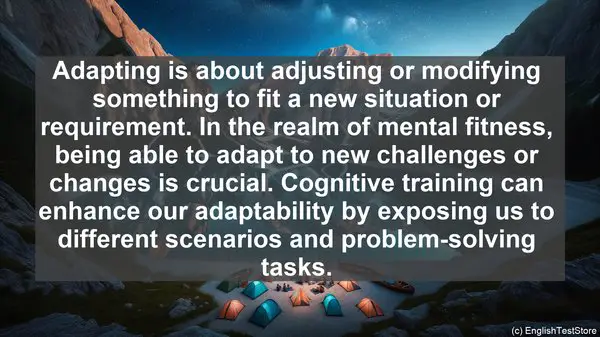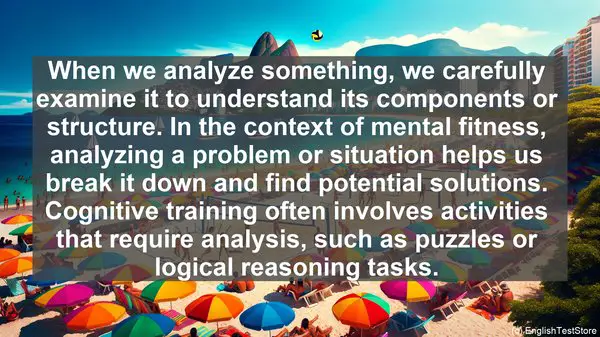Introduction
As a teacher, I understand the importance of mental fitness and cognitive training. Today, I’ll be sharing with you the top 10 English verbs that are commonly used in discussions about these topics. By mastering these verbs, you’ll be able to express your thoughts and ideas more effectively. So, let’s get started!
1. Analyze
When we analyze something, we carefully examine it to understand its components or structure. In the context of mental fitness, analyzing a problem or situation helps us break it down and find potential solutions. Cognitive training often involves activities that require analysis, such as puzzles or logical reasoning tasks.
2. Evaluate
To evaluate means to assess or judge the value, importance, or quality of something. In terms of mental fitness, we often evaluate our own performance or progress. Cognitive training programs also include evaluation components to measure improvement over time.
3. Adapt
Adapting is about adjusting or modifying something to fit a new situation or requirement. In the realm of mental fitness, being able to adapt to new challenges or changes is crucial. Cognitive training can enhance our adaptability by exposing us to different scenarios and problem-solving tasks.
4. Memorize
Memorizing involves committing something to memory, such as facts, information, or even a sequence of actions. While cognitive training focuses on more than just memorization, it’s still an essential skill. Techniques like mnemonics can aid in the memorization process.
5. Comprehend
When we comprehend, we grasp or understand the meaning or significance of something. In the context of mental fitness, comprehension is vital for tasks like reading, listening, or even problem-solving. Cognitive training can improve our comprehension abilities through exercises that challenge our understanding.

6. Synthesize
Synthesizing involves combining different elements or ideas to create something new or to form a coherent whole. In mental fitness discussions, synthesis often refers to the ability to integrate information from various sources and generate insights. Cognitive training can enhance our synthesis skills by providing opportunities for complex thinking and analysis.

7. Visualize
To visualize is to form a mental image or picture. In the context of mental fitness, visualization can be a powerful tool. For example, when learning new vocabulary, visualizing the word’s meaning or associating it with an image can aid in retention. Cognitive training exercises often incorporate visualization techniques to enhance cognitive abilities.
8. Prioritize
Prioritizing means arranging or dealing with things in order of importance or urgency. In terms of mental fitness, being able to prioritize tasks or information is crucial for effective time management and decision-making. Cognitive training can help improve our prioritization skills by providing structured activities with varying levels of importance.
9. Reflect
To reflect is to think deeply or carefully about something. In the realm of mental fitness, reflection is essential for self-awareness and continuous improvement. Cognitive training often includes reflection components, such as debriefing sessions or journaling, to encourage metacognition.
10. Innovate
Innovation involves introducing new ideas, methods, or products. While it may not be the first verb that comes to mind when discussing mental fitness, innovation is crucial. It’s about thinking outside the box, finding creative solutions, and pushing the boundaries. Cognitive training can foster innovation by encouraging divergent thinking and problem-solving.
